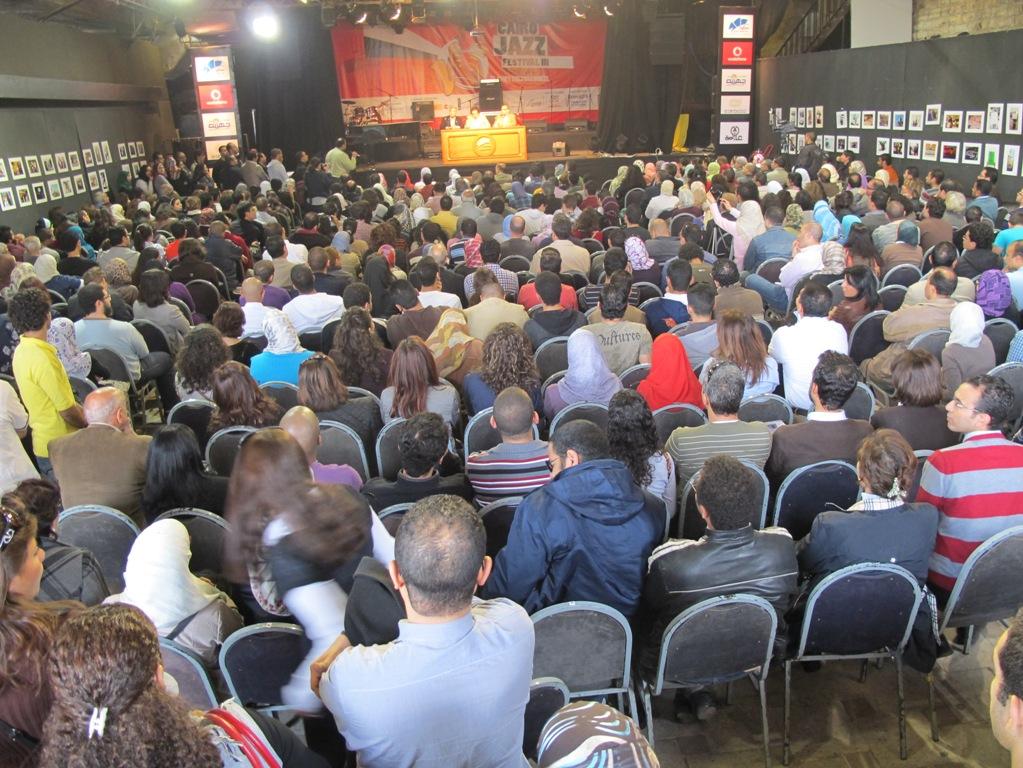Egypt to vote on key constitutional changes
By Ben Gilbert
Egyptians are about to take the first step in the long process toward forming what they hope will be a new, democratic government. Tomorrow more than 40 million voters are eligible to participate in a referendum on constitutional changes meant to open the country’s long-desolate political playing field. The amendments to the Egyptian constitution were drafted by a committee of legal scholars and experts handpicked by Egypt’s military rulers. And in true democratic form, debate about the vote is raging.
It’s hard not to run into discussion about Saturday’s vote. From the radio, to college campuses, to theaters and outdoor auditoriums — Egyptians have flocked to discussions and debates about the constitutional reforms that they will vote Saturday.
Voters will cast a ‘yes’ or ‘no’ ballot on several amendments to the constitution. And a couple hundred people showed up to an event this morning to hear to a political scientist give the arguments for both sides.
Ayman Houhy said this is the third lecture he has come to about the poll.
“Better to understand to listen to the explanation of the consequences for yes or no,” Houhy said. “I think a lot of the people are confused, and we are not mature enough to understand what everyone is saying around this subject now.”
The amendments aim to repeal many of the repressive laws that concentrated power in the hands of former president Hosni Mubarak, allowing him to stay in power for thirty years. The amendments relax restrictions on who can run for president, and limit the president to two four year terms. They also limit the implementation of emergency law. Judges will oversee elections, which were rigged before.
After today’s lecture, Ayman decided to vote “No” on the referendum. He and other opponents don’t object to the constitutional amendments per se; they worry the reforms don’t go far enough. There’s one amendment, for example, essentially giving the soon-to-be formed parliament power to draft an entirely new constitution.
Abdel-Halim Qandil, spokesman for the Kafaya party movement, which represents many of the activists who took part in the demonstrations here, said a new constitution should come first and then the government, not the other way around.
“The problem is that elections are expected to be held sometime this summer,” said Qandil, “and the winners of those elections would draft the new constitution. I worry that only a few established political parties will have all the say in Egypt’s future.”
The two most organized forces in Egyptian politics are the Muslim Brotherhood and the former ruling National Democratic Party. Opponents fear these two groups could use their advantage in a new parliament to create a constitution that keeps them in power.
Demonstrators chanted, “we want a new constitution,” during a protest against the constitutional amendments Friday in Tahrir square. Noticeably absent were any members of the Muslim Brotherhood. They are voting for the amendments tomorrow. A Muslim Imam associated with the Salafist movement, a Muslim Brotherhood ally, looked around the square skeptically.
Fawzi Youssef al Hawarwy is voting ‘yes’ tomorrow, because he feels the political process needs to begin as soon as possible.
“I believe in gradual steps, so what will happen tomorrow is the first step toward instituting a new constitution,” Hawarwy said.
It’s not just the conservative Islamists who feel this way. Some secular liberal activists plan to vote yes because they say they want to see the Egyptian military get out of politics. Regardless of their political persuasion, Egyptians seem invigorated by the fact that they finally feel they have a voice in their country’s future. As one politician said earlier this week, it’s the first Egyptian election in 7000 years where the results haven’t been known ahead of a single vote being cast.
Our coverage reaches millions each week, but only a small fraction of listeners contribute to sustain our program. We still need 224 more people to donate $100 or $10/monthly to unlock our $67,000 match. Will you help us get there today?
